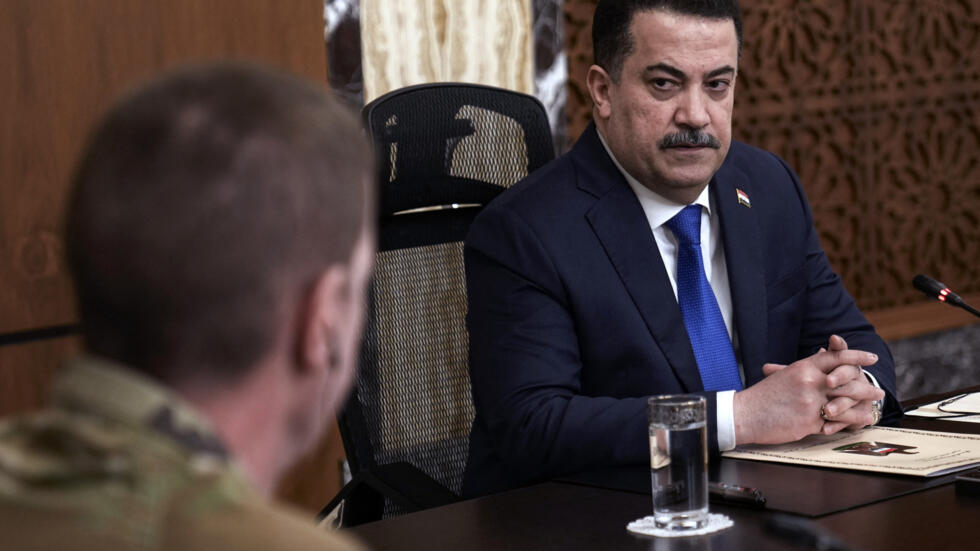Alwaght- The US withdrew its forces from Iraq in 2011 after nearly a decade of occupation, but emergence of ISIS terrorist group in 2014 gave Washington a new excuse to redeploy its forces to this country under the title of "international anti-ISIS coalition". Currently, around 2,500 American troops are stationed in Iraq under the ruse of fighting ISIS and are operating 11 military bases there.
Indeed, this point can't be ignored that after obliteration of ISIS in Iraq by the resistance forces, the US decided to keep its forces in the country to check deeper influence of Iran in Iraq and also to intervene in the country's internal affairs. Another important point is that, the Americans are seeking to destabilize the region and buy security for their main ally the Israeli regime through their arms support to the remnants of terrorist group in the region. Actually, these two points can be seen as a strong motivation for the American stay in Iraq. With the eruption of Gaza crisis and increase in the American attacks on the resistance groups that led to assassination of Abu Bagher al-Saadi, a senior commander of the Public Mobilization Forces (PMF), and Abu Taghwa, the deputy commander of powerful Al-Nujaba group and PMF operations, the confrontation between the resistance groups and the US has intensified.
This situation has caused the demand for the expulsion of American forces to once again become the priority of public and the political circles in Iraq— an issue that forced Prime Minister Mohammed Shia al-Sudani's government to react and announce that it "will take all necessary legal measures to respond to this aggression and we will file a lawsuit with to the Security Council against Washington."
Recently, the parliament increased the pressure on the central government to implement this decision as soon as possible. In this regard, a joint committee has been formed in Iraq and the first round of bilateral talks between Iraq and the US to end the coalition presence in Iraq started in February this year. Iraq made it clear that the purpose of these negotiations was to end the activity of the US-led military coalition on its soil.
A part of a statement released by Baghdad stated: "Military experts will monitor the end of the international coalition's military mission against Daesh (ISIS) in Iraq , a decade after it began and after their successful mission in partnership with the Iraqi security and military forces." In an article detailing the Baghdad-Washington talks, Aljazeera wrote that Washington has announced that it agreed with Baghdad to set up a "task force" consisting of military and defense experts as part of the joint commission. Baghdad expects that the talks will lead to drawing up a timetable for ending the US presence. However, the Pentagon says that the recent meeting of the high military commission of the US and Iraq has nothing to do with the withdrawal case.
In 2020, three days after assassination of Iran's General Qassam Soleimani and Iraq's Abu Mahdi al-Muhandis at Baghdad International Airport, the Iraqi parliament passed a law demanding the government to revoke the request for security assistance from the international coalition forces. According to the bill, the government was directed to take steps to end the presence of foreign forces and deny them use of the Iraqi sea, land, and airspace under any title.
Resistance groups stress on implementation of parliamentary bill
Resistance groups in Iraq have reiterated several times that the US forces should pull out of Iraq according to the 2020 bill, warning that attacks on them will go on in various parts of the country as long as the bill is not adopted. They argue that central government should quit advocacy to the US presence under such titles as advisory assistance and delegitimize them to end this serious challenge.
Arab-language media quoted Qais Khazali, the secretary general of Iraq's Asaib Ahl-Haq—the a key force opposing the US presence– in this regard published an article in which he said the Americans are seeking to create a buffer zone on the borders of Iraq and Syria.
"We have detailed information about the replacement of American forces with 2,500 more soldiers," he said
In the meantime, an interesting point is mentioned by the Western media. For example, Politico reported that the US is playing Iraqi and Syrian officials. The website further cites US government officials as saying that there is no imminent direction from US President Joe Biden to withdraw from Iraq or Syria.
An issue about the American military presence in Iraq over which political experts and observer have consensus is that there would be no immediacy in American withdrawal. Regional experts believe that the US will not withdraw from Iraq, but will shed skin. In other words, it will change its presence label. For example, in 2014, its presence excuse was anti-ISIS fight and now it is upgrading military cooperation with Iraq all to secure one thing: staying in Iraq.
All in all, it can be concluded that the US will not easily leave Iraq on its own for an array of reasons including Iraq's geopolitical position, its energy reserves, for containing Iranians political and military foothold, for undermining resistance forces in Iraq, Syria, and Palestine, and for providing logistical support to Israeli allies like Iraqi Kurdistan region which helps improve Israeli position and destabilize West Asian countries. Predictably, conclusion of the talks with the US for withdrawal will be beyond life of al-Sudani's government and this case will remain obsession of next governments. Perhaps, Gaza war will give the Americans a bigger reason to seek to contain the resistance forces in the region.



























